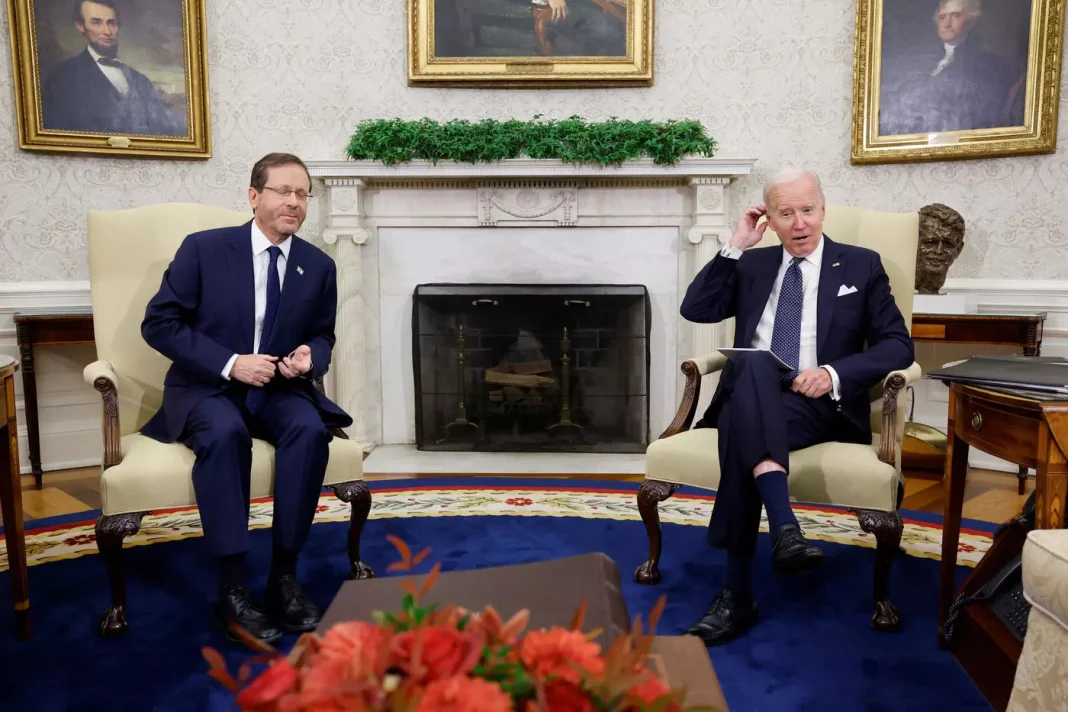“There is not going to be any cut or stoppage of military aid, and that is because our commitment to Israel and our commitment to Israel’s security is ironclad. Our decades-long partnership with Israel is ironclad,” said US State Department spokesperson Vedant Patel on Tuesday.
“It is clear that the legislation has consequences for people’s day-to-day lives, and that is why we said that such changes in democracy require a broad consensus,” he added.
Earlier this week the White House announced it was “unfortunate” that Israel’s parliament passed a law diminishing the powers of the courts, as part of planned reforms to the judicial system.
The Joe Biden administration has sought to dissuade Prime Minister Benjamin Netanyahu’s ultra-nationalist coalition government from passing legislation that many in Israel and abroad see as an attempt to subvert the country’s democratic institutions.
US Defence Secretary Lloyd Austin, speaking on Tuesday to his Israeli counterpart Yoav Gallant, urged a “broad consensus through political dialogue, especially in the coming weeks and months”, both of which he said “are critical elements of a resilient democracy”.
While continuing its military aid to Israel hasn’t been questioned by US officials, the Israeli judicial crisis has strained relations between the Biden and Netanyahu administrations.
“It is unfortunate that the vote took place today,” White House press secretary Karine Jean-Pierre said on Monday.
“It happened with the slimmest possible majority,” she continued, adding in a rebuke that the relationship between the countries is based on “democratic values – shared democratic values and interests”.
Supported by legislators from Netanyahu’s coalition government, the Israeli parliament passed a law abolishing the “reasonableness standard”, removing the Supreme Court’s ability to block government decisions it deems unreasonable.
It is part of a package of bills proposed by the government earlier this year, seeking to overhaul the judicial system.
Since being re-elected late last year to head one of the most right-wing coalitions in Israel’s history, Netanyahu has been pursuing changes to the judiciary that would give his government greater sway in selecting judges and limit the power of the Supreme Court to strike down legislation.
Earlier this week the American Jewish Committee expressed its “profound disappointment over the passage of the law”. According to a statement, the organisation said that this deepened the divisions in Israeli society, as evidenced by the hundreds of thousands of people who have taken to the streets.
“The continued effort to press forward on judicial reform rather than seeking compromise has sown discord within the Israeli Defense Forces at a time of elevated threats to the Jewish homeland and has strained the vital relationship between Israel and Diaspora Jewry,” the statement read.
